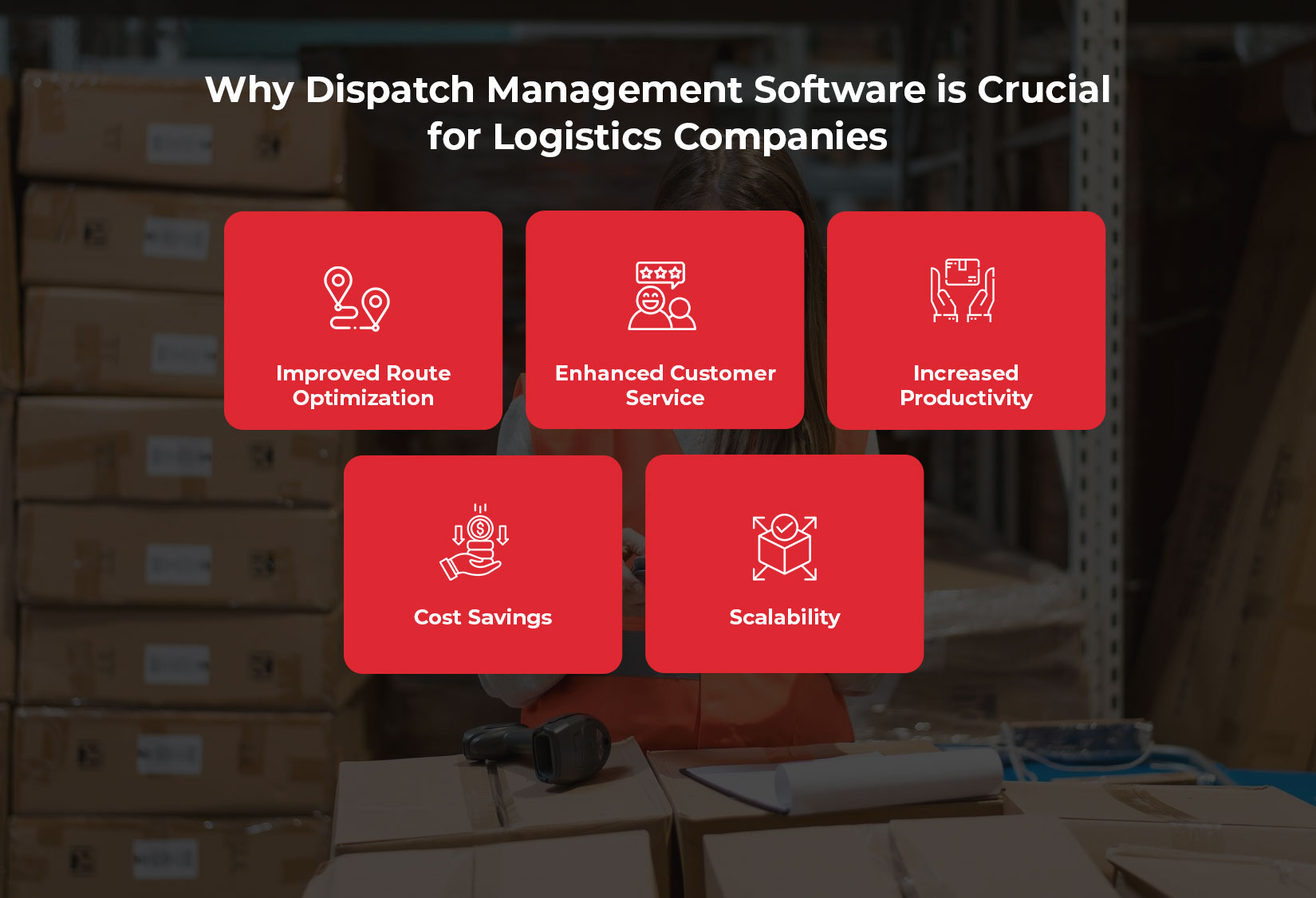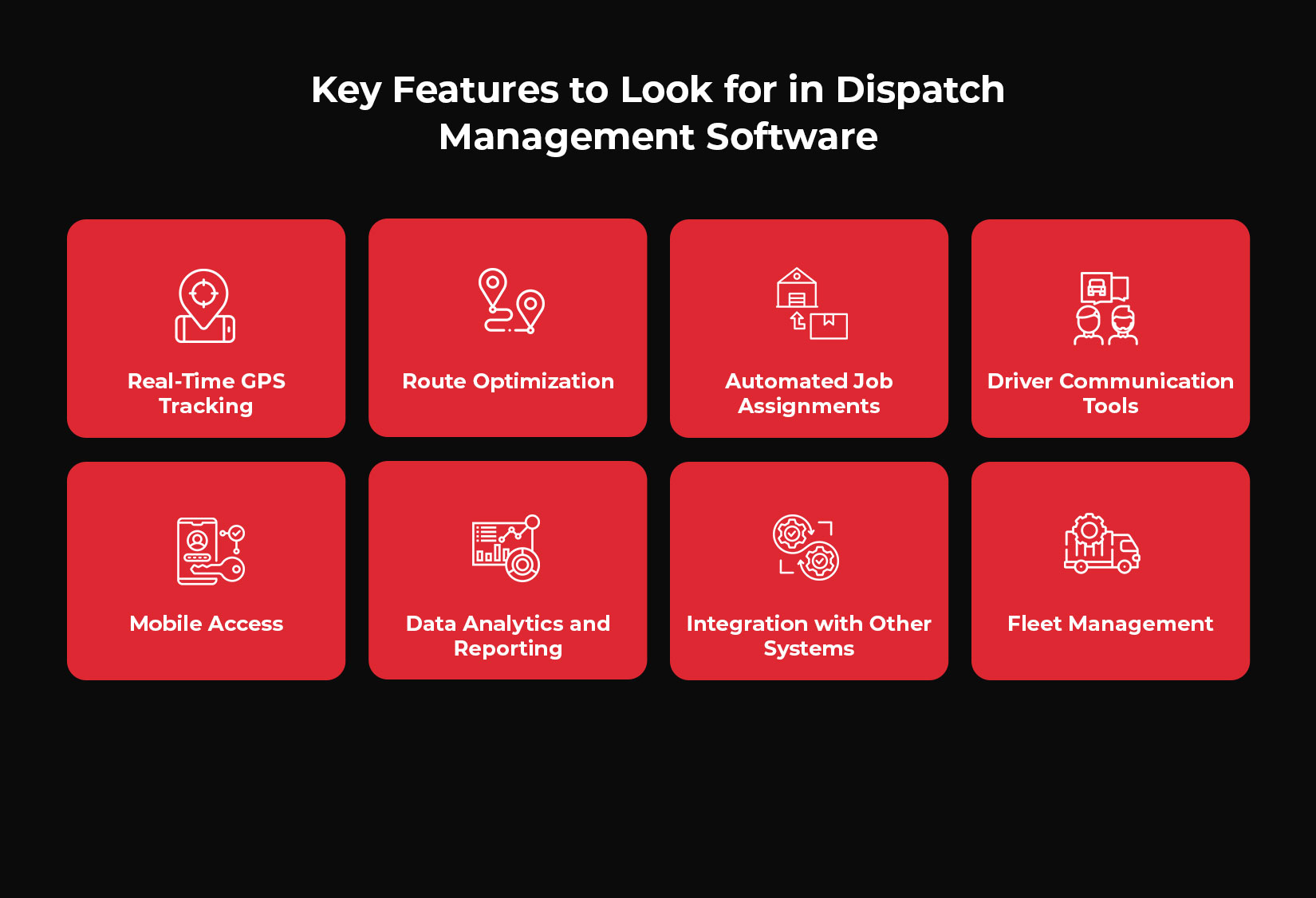In today’s fast-paced logistics industry, optimizing operational efficiency is crucial for staying competitive. One of the most effective ways to achieve this is by using dispatch management software. Logistics companies face increasing demands for faster deliveries and improved customer service. The right dispatch software can make a significant difference in meeting these challenges. However, with so many options on the market, choosing the best dispatch management software can be challenging. Logistics companies must carefully evaluate their needs to find the most suitable solution. In this comprehensive guide, we’ll explore everything you need to know about dispatch management software and how to choose the right one for your needs in 2024.
What is Dispatch Management Software?
Dispatch management software is a solution designed to automate and streamline the process of scheduling, routing, and tracking deliveries. It helps logistics companies manage their fleets more efficiently, ensuring timely deliveries and optimizing routes. This software integrates various functions, including fleet management, route optimization, real-time tracking, and reporting, into one centralized platform.
With the growing demands of e-commerce and customer expectations for faster delivery times, dispatch management system has become an essential tool for logistics companies. It offers a range of features, including real-time communication between drivers and dispatchers and automated job assignments. Additionally, it provides data-driven insights that enhance overall operational efficiency.
Why Dispatch Management Software is Crucial for Logistics Companies

The logistics industry faces several challenges, from rising fuel costs to managing a growing number of deliveries. The right dispatch software can address these challenges and significantly improve your operations. Here’s why:
1. Improved Route Optimization:
Dispatch software can help optimize delivery routes based on real-time data, reducing fuel consumption and minimizing travel time. This leads to more efficient operations and fewer delays.
2. Enhanced Customer Service:
By providing accurate delivery tracking and real-time updates, dispatch management technology enhances the customer experience. Customers can track their shipments in real time, reducing the need for customer service calls.
3. Increased Productivity:
Automating tasks such as route planning and job assignments frees up your team to focus on more critical tasks. This boosts overall productivity and reduces human error.
4. Cost Savings:
The right dispatch software can help reduce operational costs by optimizing routes, minimizing downtime, and improving fleet management.
5. Scalability:
As your logistics business grows, dispatch management solution allows you to scale your operations without significantly increasing overhead costs. You can add more vehicles, drivers, and routes to your existing system without major disruptions.
Key Features to Look for in Dispatch Management Software

When evaluating dispatch software, it’s essential to consider the specific features that will benefit your operations. Here are the key features to look for:
1. Real-Time GPS Tracking:
One of the most valuable features of dispatch management solution is real-time GPS tracking. This allows you to monitor the location of your fleet at all times, ensuring that deliveries are on schedule and drivers are following the most efficient routes.
2. Route Optimization:
Route optimization is crucial for reducing fuel consumption and delivery times. The best dispatch management software uses algorithms to create the most efficient routes. It considers factors such as traffic, weather conditions, and other real-time data.
3. Automated Job Assignments:
Automating job assignments ensures that deliveries are assigned to the right drivers based on proximity, availability, and skill set. This reduces human error and ensures that resources are used optimally.
4. Driver Communication Tools:
Effective communication between dispatchers and drivers is essential for smooth operations. Dispatch software should provide a platform for real-time messaging, updates, and notifications to ensure drivers are always in the loop.
5. Mobile Access:
Mobile access allows drivers to receive updates, navigate routes, and communicate with dispatchers on the go. A mobile-friendly interface is essential for modern logistics operations.
6. Data Analytics and Reporting:
Dispatch software should provide data analytics and reporting tools to track performance, identify areas for improvement, and make data-driven decisions. These insights can help you optimize operations and boost profitability.
7. Integration with Other Systems:
The best dispatch management system integrates seamlessly with other business tools, such as inventory management, CRM, and accounting software. This helps create a unified platform for all aspects of your operations.
8. Fleet Management:
Effective fleet management tools allow you to track vehicle maintenance schedules, monitor fuel usage, and manage driver performance. This helps extend the life of your fleet and reduce maintenance costs.
How to Choose the Best Dispatch Management Software for Logistics Companies

Choosing the best dispatch management software for logistics companies requires careful consideration. With many options available, it’s essential to evaluate each one based on your unique needs. Here are some factors to keep in mind:
1. Evaluate Your Company’s Needs:
Before selecting a dispatch management technology, take the time to evaluate your company’s specific needs. Consider the size of your fleet, the number of deliveries you handle daily, and the complexity of your routes. Understanding your requirements will help you choose a solution that aligns with your business goals.
2. Look for Scalability:
As your logistics business grows, your dispatch software should be able to scale with it. Choose software that can accommodate additional vehicles, drivers, and deliveries without significant upgrades or downtime.
3. Consider User-Friendliness:
The best dispatch software should be easy to use for both dispatchers and drivers. Look for a solution with an intuitive interface, clear instructions, and minimal training requirements. The easier it is to use, the more efficient your team will be.
4. Check Customer Reviews and Testimonials:
Reading reviews and testimonials from other logistics companies can provide valuable insights into the effectiveness of a particular dispatch management software. Look for feedback on ease of use, customer support, and overall satisfaction.
5. Ensure Data Security:
Security is a critical consideration when choosing dispatch management platform. Ensure that the software provider follows industry best practices for data security to protect sensitive customer and operational data.
6. Access the Cost:
Cost is always a factor in choosing dispatch software. However, don’t just look at the upfront cost. Consider the long-term value the software will provide in terms of efficiency gains, cost savings, and customer satisfaction.
7. Request a Demo or Trial:
Most software providers offer a demo or free trial. Take advantage of this to test the software and ensure it meets your company’s needs before making a commitment.
Conclusion
Choosing the right dispatch management software is essential for optimizing your logistics operations. By considering the key features and evaluating your company’s needs, you can identify the right solution. This will help enhance productivity, reduce costs, and improve customer satisfaction. As the logistics industry continues to evolve in 2024, investing in the best dispatch management software will be essential for staying competitive. It enables companies to meet the growing demands of the market effectively. Optimize your logisitcs operations with LogiNext Solutions, click on the red button and book a demo today.
5





















